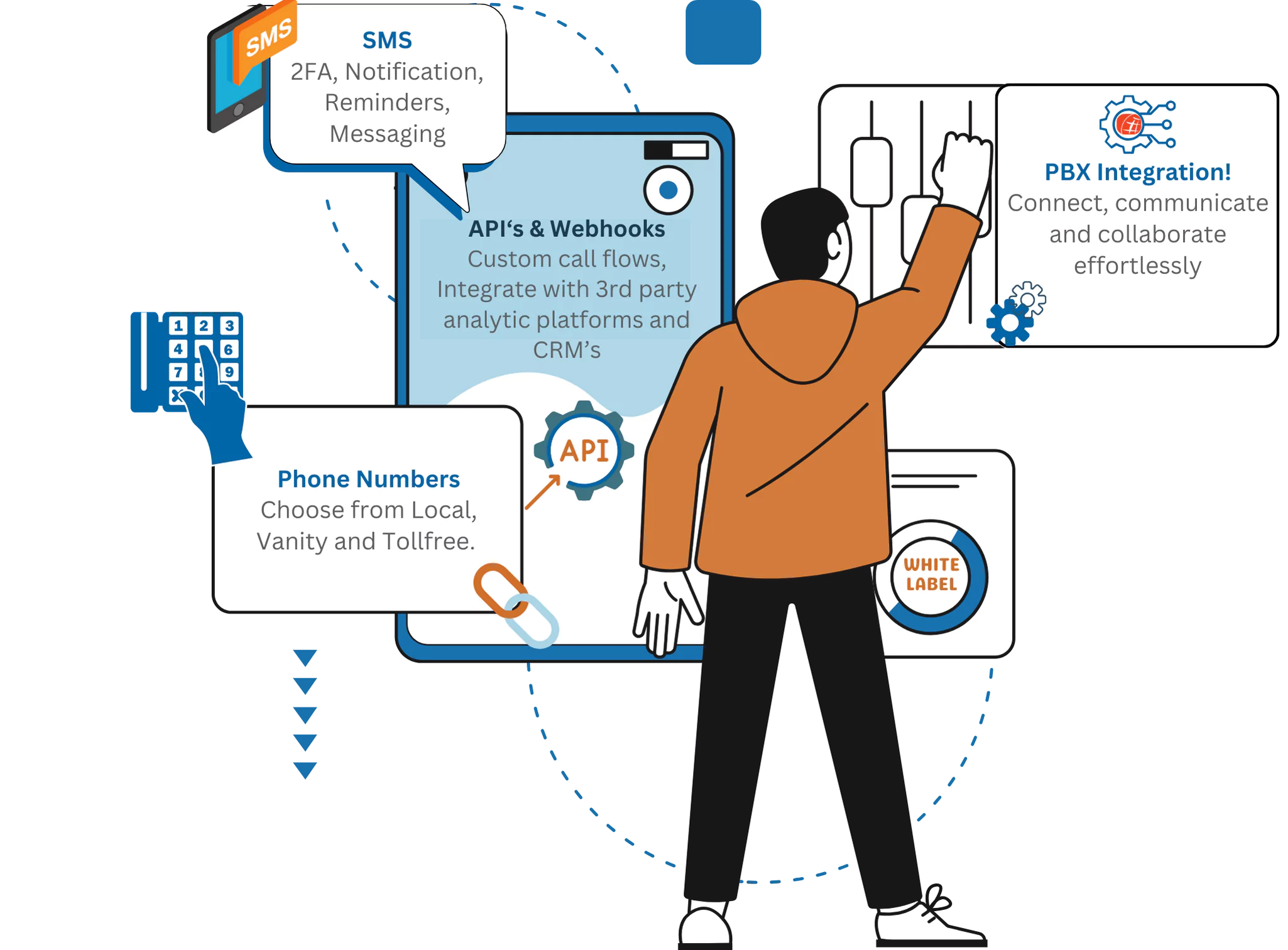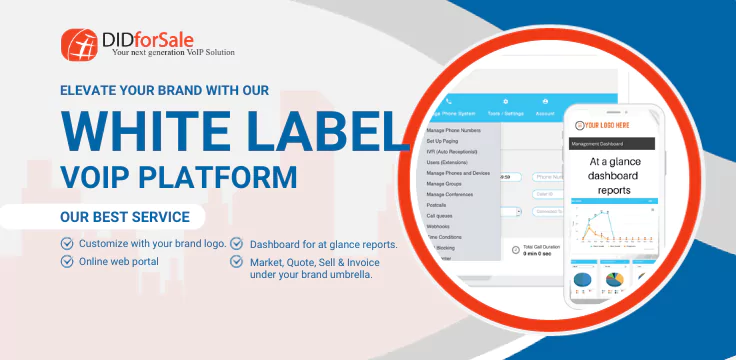In today’s fast-paced world, small and medium-sized businesses are seeking efficient and flexible communication systems to stay ahead. The decision between opting for a modern cloud-based phone system and sticking with traditional SIP trunking with an in-house PBX can make a significant difference in how a business operates. Let’s dive into why cloud-based business phone services offer a superior solution for most businesses.
Ease of Management – No More Technical Headaches
With an in-house PBX, managing your phone system can become a daily chore. You need in-house technical support to configure, maintain, and troubleshoot issues. If you rely on one or two employees to manage this critical infrastructure, you risk facing major disruptions if they leave the company. The knowledge gap left behind could potentially leave your entire phone system in jeopardy, impacting business operations and customer service.
On the other hand, a cloud-based business phone service frees you from these worries. It doesn’t require specialized hardware or on-site expertise. Your provider takes care of all the maintenance, updates, and technical support. Even if your team changes, your communication infrastructure remains stable, allowing you to focus on growing your business instead of worrying about downtime or disruptions.
Flexibility and Scalability Without the Hassle
An in-house PBX might seem like a stable solution at first, but scaling it can quickly turn into a logistical nightmare. Adding new users often requires purchasing additional hardware, making configuration changes, and investing in more support hours. It’s time-consuming and can lead to unnecessary costs—not to mention the inconvenience of needing on-site expertise to handle these changes.
With a cloud-based phone system, scalability is as simple as clicking a few buttons. Need to add a new line? It can be done instantly without purchasing any new equipment. The flexibility of a cloud-based phone service allows your business to adapt seamlessly to growth, whether that’s opening a new branch or onboarding new employees. You’re not constrained by physical infrastructure, and you can make changes on the go without needing specialized technical knowledge.
Built-in Business Continuity and Reliability
When you rely on an in-house PBX, you’re putting all your communication eggs in one basket. What happens if there’s a power outage, hardware failure, or unexpected disaster? Without a comprehensive backup plan, your business could face downtime and revenue loss.
Cloud-based phone systems are designed with redundancy and business continuity in mind. Your phone system is hosted in the cloud, ensuring that, even if there is an issue at your office, your calls can continue uninterrupted. Employees can take calls from anywhere—whether they’re working remotely or on the move. This level of reliability is crucial for maintaining strong relationships with customers and ensuring smooth internal communication.
Cost Efficiency: Lower Overheads, Higher Value
Maintaining an in-house PBX system involves significant costs. Beyond the initial investment in hardware and getting cheapest SIP Trunking, there are ongoing expenses such as maintenance, software updates, and hiring or training personnel to manage the system. For a small or medium-sized business, these costs can add up quickly, eating into budgets that could be better spent elsewhere.
In contrast, cloud-based phone services often come at a predictable monthly rate starting at $4.50/user (PYG Plan), with no upfront capital expenditures or hidden maintenance costs. Many providers even offer free cloud-based solutions with essential features that are more than enough for most small businesses. You get advanced features like call forwarding, voicemail to email, and mobile app integration—all without the burden of managing physical hardware or dealing with unexpected repair costs.
Advanced Features Without Complexity
In-house PBX systems often struggle to keep up with modern business communication needs. Features like video conferencing, mobile integration, and CRM integration typically require expensive add-ons or complicated customization. Even then, they may not match the functionality and ease of use offered by cloud-based services.
With a cloud-based phone system, advanced features come standard. You get seamless integration with your favorite business tools, crystal-clear voice calls, video conferencing, call analytics, and more. All these features are easy to use and don’t require a technical background to manage. Plus, they’re continuously updated by the service provider, meaning your system always has the latest technology without you needing to lift a finger.
Focus on Your Core Business, Not the Technology
Ultimately, the biggest advantage of a cloud-based business phone service is the freedom it provides. Instead of spending valuable time and resources managing your phone system, you can focus on what matters most—delivering exceptional products and services to your customers. The provider takes care of the infrastructure, maintenance, and support, leaving you to do what you do best.
DIDForSale offers hosted White Label VoIP Phone System with SIP Trunking which can be the right choice for resellers using Freeswitch, Asterisk, or 3CX kind of platforms for their customers. This can help them focus on new revenue versus dealing with maintenance and installation of multiple phone systems for their customers.
When you weigh the pros and cons, the choice becomes clear. A cloud-based phone service offers cost efficiency, scalability, reliability, and ease of use that an in-house PBX simply can’t match. It’s time to move away from the risks and limitations of SIP trunking with an in-house PBX and embrace the flexibility and freedom of the cloud.






